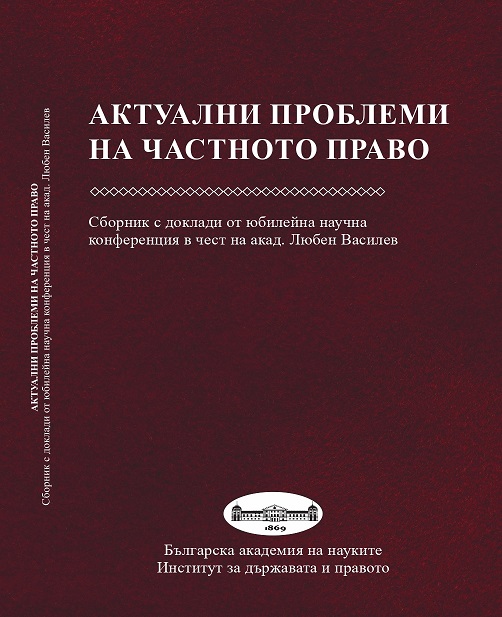ЗА СЪОТНОШЕНИЕТО МЕЖДУ ЧЛ. 26, АЛ. 2 И ЧЛ. 31 ЗЗД – ДЕСЕТ ГОДИНИ ПО-КЪСНО ЗА КВАЛИФИКАЦИЯТА НА ДОГОВОРА, СКЛЮЧЕН ОТ ДЕЕСПОСОБНО ЛИЦЕ, КОЕТО НЕ МОЖЕ ДА РАЗБИРА ИЛИ ДА РЪКОВОДИ ДЕЙСТВИЯТА СИ В СВЕТЛИНАТА НА НАЙ-НОВАТА СЪДЕБНА ПРАКТИКА)
ОN THE RATIO BETWEEN ART. 26, PARA. 2 AND АRT. 31 LAW ON OBLIGATIONS AND CONTRACTS – TEN YEARS LATER (ON THE QUALIFICATION OF A CONTRACT CONCLUDED BY AN ABLE-BODIED PERSON WHO CANNOT UNDERSTAND OR DIRECT HIS ACTIONS IN THE LIGHT OF THE LATEST CASE LA
Author(s): Ivan Ruschev
Subject(s): Law, Constitution, Jurisprudence, Civil Law, Court case
Published by: Институт за държавата и правото - Българска академия на науките
Keywords: nullity; аnullability; permanent inability to understand or direct actions
Summary/Abstract: For decades, under the influence of classical doctrine, it has been misunderstood in practice that contracts, entered into by a person, who did not understand or could not direct their actions, but was not formally placed under interdiction, are always annullable. Recently, several adjudications of the Supreme Court of Cassation aimed towards an alteration of the latter, which led to the initiation of an Interpretative case №5/2020 of General Civil and Commercial Chambers on the issue of the ratio between the nullity of transaction due to lack of consent and the nullification due to misunderstanding of actions. This paper attempts to substantiate that the contract, concluded by an able-bodied person, who at the time of its conclusion was in a state of permanent inability to understand or direct their actions, is null and void due to lack of consent (Art. 26, para. 2 Law of Obligations). Thus, it will be annullable under Art. 31 Law of Obligations, solely when this incapacity is temporary and transient.
- Page Range: 25-50
- Page Count: 26
- Publication Year: 2023
- Language: Bulgarian
- Content File-PDF

